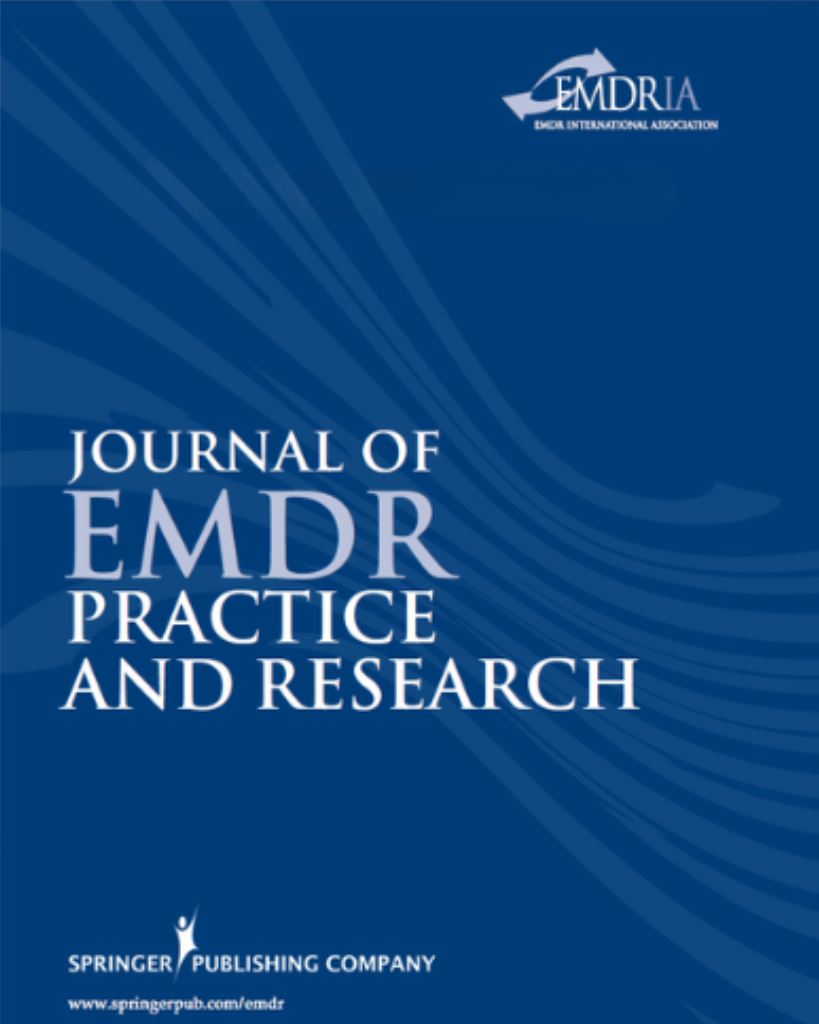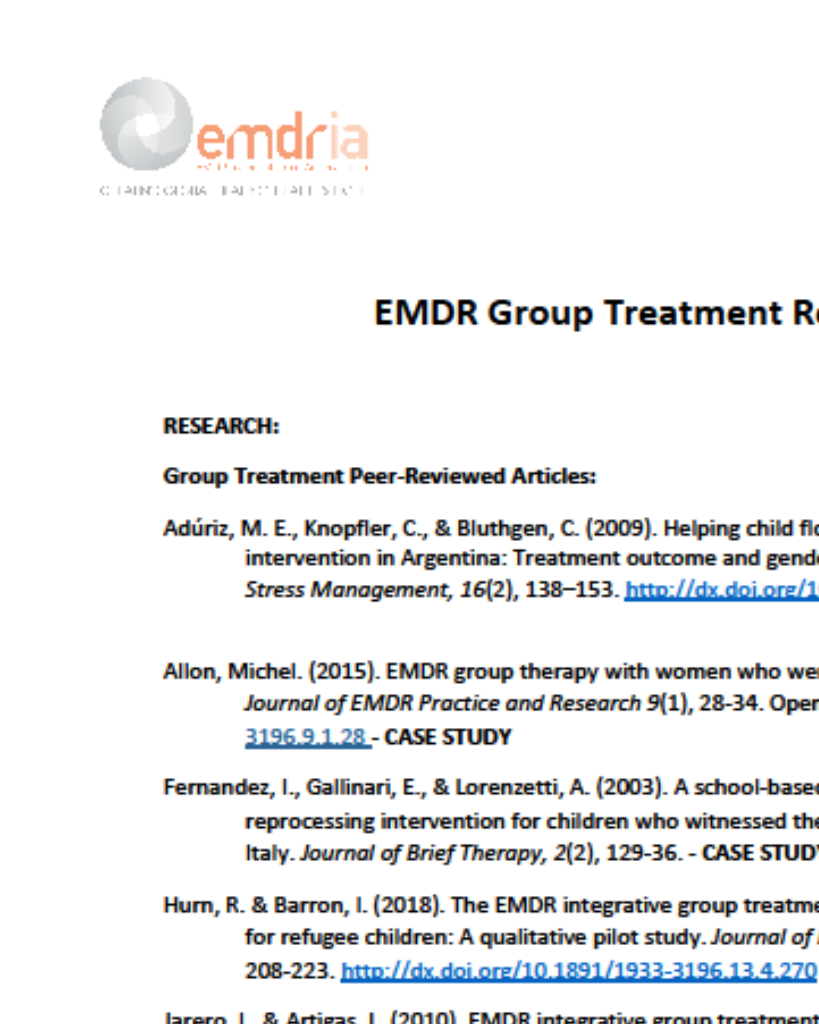A Developmental/Integrative Perspective of the Recent Traumatic Episode Protocol
The recent traumatic episode protocol (R-TEP) is an adaptation of the EMDR standard protocol to the acute phases following trauma.
Article Abstract
“The recent traumatic episode protocol (R-TEP) is an adaptation of the eye movement desensitization reprocessing (EMDR) standard protocol to the acute phases following trauma. In this article, the R-TEP structure and procedures were analyzed from a developmental/integrative perspective. It is proposed that the therapist’s developmental understanding and attunement can enhance the therapeutic dyad and can promote flexible decision making while using the R-TEP procedures. One case illustration of a recent trauma intervention demonstrates the advantage of developmental attunement in using the R-TEP. This perspective enables the therapist to pace the various styles of processing as they relate to the different stages of the memory consolidation process.”
—Description from publisher
Article Access
Open Access
Laub, B., & Weiner, N. (2011). A Developmental/Integrative Perspective of the Recent Traumatic Episode Protocol. Journal of EMDR Practice and Research, 5(2), 57–72. https://doi.org/10.1891/1933-3196.5.2.57
About the Journal
The Journal of EMDR Practice and Research is a peer-reviewed publication devoted to integrative, state-of-the-art papers about Eye Movement Desensitization and Reprocessing. It is a broadly conceived interdisciplinary journal that stimulates and communicates research and theory about EMDR, and their application to clinical practice. The Journal of EMDR Practice and Research is the Official Publication of the EMDR International Association.
Date
June 1, 2011
Creator(s)
Brurit Laub, Nomi Weiner
Practice & Methods
AIP
Extent
16 pages
Publisher
Springer Publishing Company
Rights
Copyright © 2011 EMDR International Association
APA Citation
Laub, B., & Weiner, N. (2011). A Developmental/Integrative Perspective of the Recent Traumatic Episode Protocol. Journal of EMDR Practice and Research, 5(2), 57–72. https://doi.org/10.1891/1933-3196.5.2.57
Series
5
Installment
2
Audience
EMDR Therapists
Language
English
Content Type
Peer-Reviewed
Original Source
Journal of EMDR Practice and Research
Access Type
Open Access





